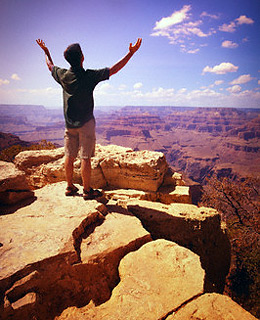
Stop putting off seeing the aurora lights, warming up in the hot springs of Greenland or learning a new instrument — just do it. If you often do one thing that makes you happy, then try another. Psychologist Rich Walker of Winston-Salem State University looked at 30,000 event memories and over 500 diaries, ranging from durations of 3 months to 4 years, and says that people who engage in a variety of experiences are more likely to retain positive emotions and minimize negative ones than people who have fewer experiences. Psychologist Barbara Fredrickson, at the University of North Carolina Chapel Hill, studies her broaden-and-build hypothesis of positive emotion. Her research suggests that the optimal ratio of positive to negative emotion in humans is above 3 to 1 and below 11 to 1. Walker has observed that once the ratio of positive to negative events hit 1 to 1, it opens the door to potential disorders, such as anxiety and depression.